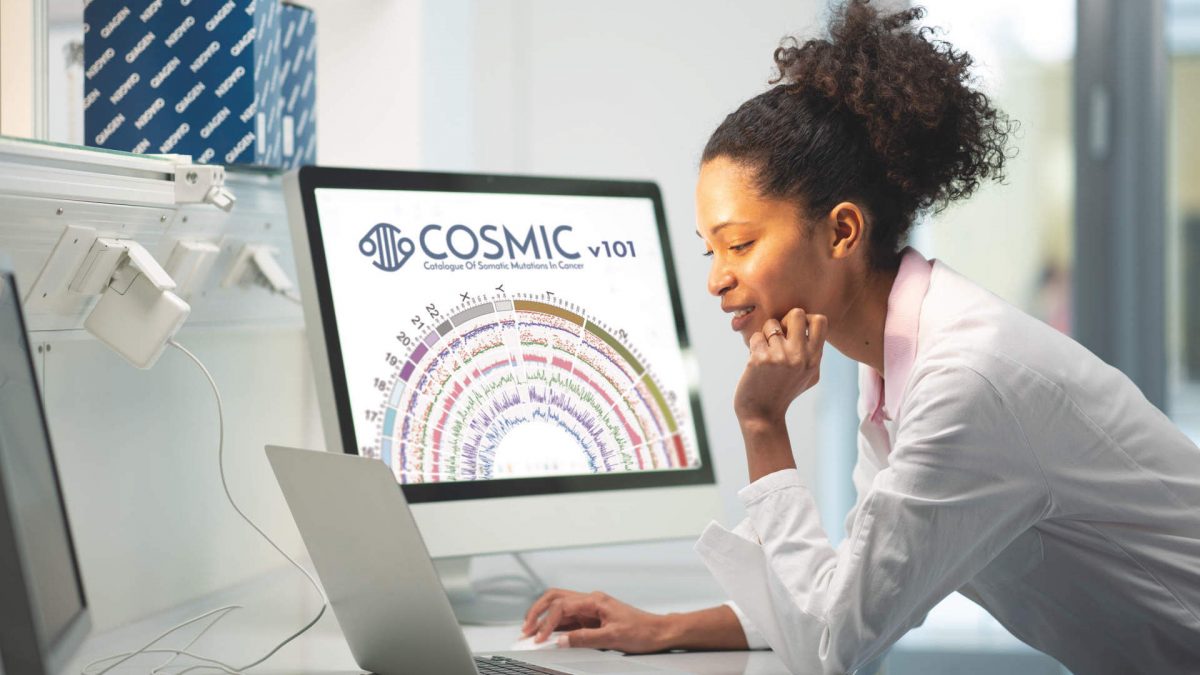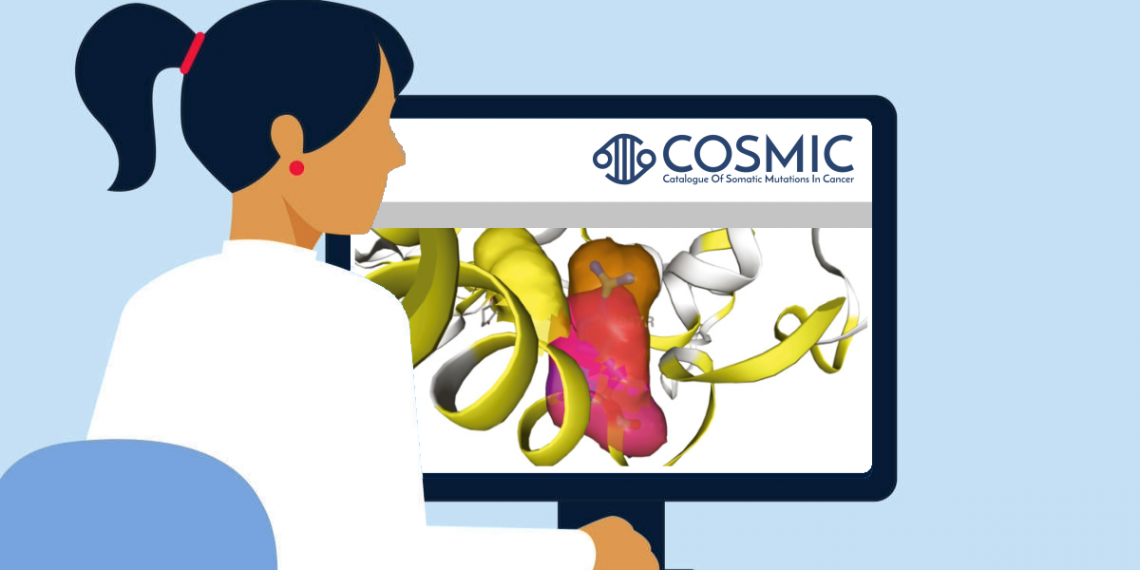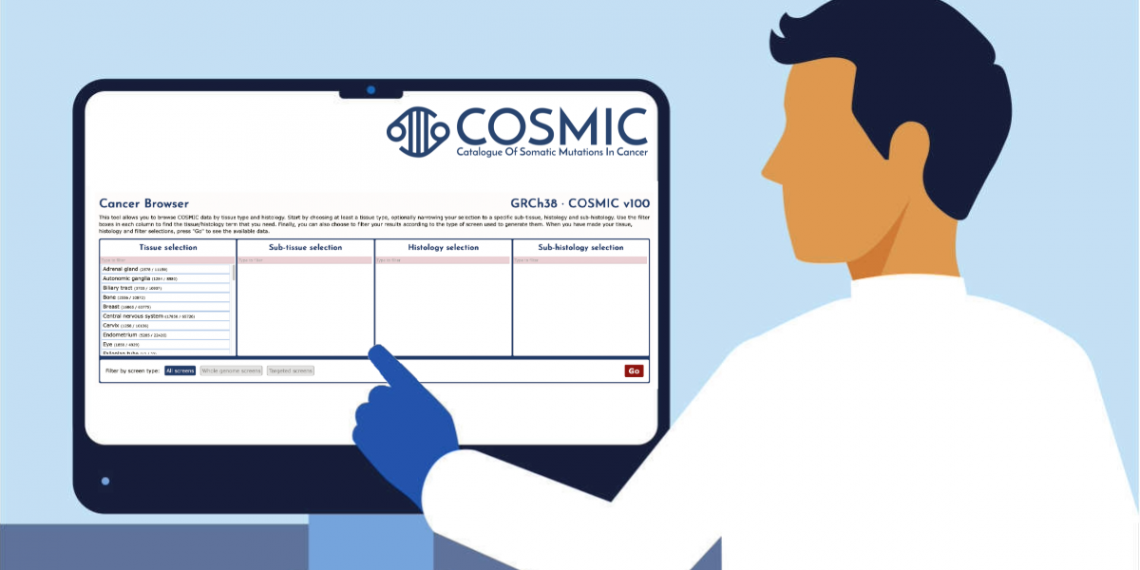


















New data has been added to the Catalogue of Somatic Mutations in Cancer (COSMIC), with the availability of the COSMIC v101 and Actionability v14 releases. These updates enhance our understanding of somatic mutations across rare and high-need cancers while expanding actionable insights for clinical applications.
In this article, we provide a summary of the COSMIC v101 and Actionability v14 release highlights.
COSMIC is an expert-curated database encompassing the wide variety of somatic mutation mechanisms causing human cancer. Owned and maintained by the Wellcome Sanger Institute, COSMIC is exclusively licensed through QIAGEN.
COSMIC’s team of variant scientists manually curates key cancer genes to provide in-depth information on mutation distributions and effects. The team relies on a semi-automated curation process of cancer genomes to provide broad somatic annotations toward target discovery and identification of patterns and signatures. To date, COSMIC contains over 24 million somatic mutations associated with more than 6,800 human cancers.
Key Curation Focus
The v101 release prioritizes somatic mutation data from whole genome sequencing (WGS) and whole exome sequencing (WES) studies, emphasizing rare cancer types and cancers with high medical need. Key areas of focus include:
Highlight: Chernobyl Radiation and Papillary Thyroid Cancer
Among the curated studies, a systematic screen (PMID: 33888599) analyzing radiation-related genomic alterations in papillary thyroid cancer (PTC) provides significant insights. The study analyzed 383 samples, 305 from individuals exposed as children to ionizing radiation from the 1986 Chernobyl disaster. Key findings include:
This contrasts findings from the Fukushima nuclear accident, where BRAF V600E mutations predominated, mirroring patterns in sporadic PTC (PMIDs: 26584635, 32827026).
Additional updates in COSMIC v101
→ Want more details? Read the full COSMIC v101 release notes for more details.
COSMIC Actionability is a standalone product within the COSMIC database that provides information on the availability and development of drugs targeting somatic mutations in cancer. COSMIC’s certified curation team integrates data from case studies, clinical trials, and regulatory bodies to represent a full picture of the current precision oncology pipeline (from drug development, through safety and clinical phases, to market and repurposing).
Actionability contains information on three core units: mutations, diseases and drugs. By capturing relations between these units, COSMIC’s team identifies existing and upcoming drugs that target specific genetic variants in different cancer types.
Releases of Actionability occur more frequently than COSMIC to better reflect the rapid pace of global precision oncology. Actionability is a cutting-edge, ‘living-tool’ that ensures you always have the latest, expert-certified data to inform therapeutic decision-making.
The COSMIC Actionability database serves as a vital resource for identifying actionable mutations and associated therapies in cancer. The v14 release includes:
→ View the full COSMIC Actionability v14 Release Notes here.
Explore the industry-leading somatic mutation database and request free COSMIC sample data by clicking the link below. For more information on applications and case studies, check out our featured resources.

